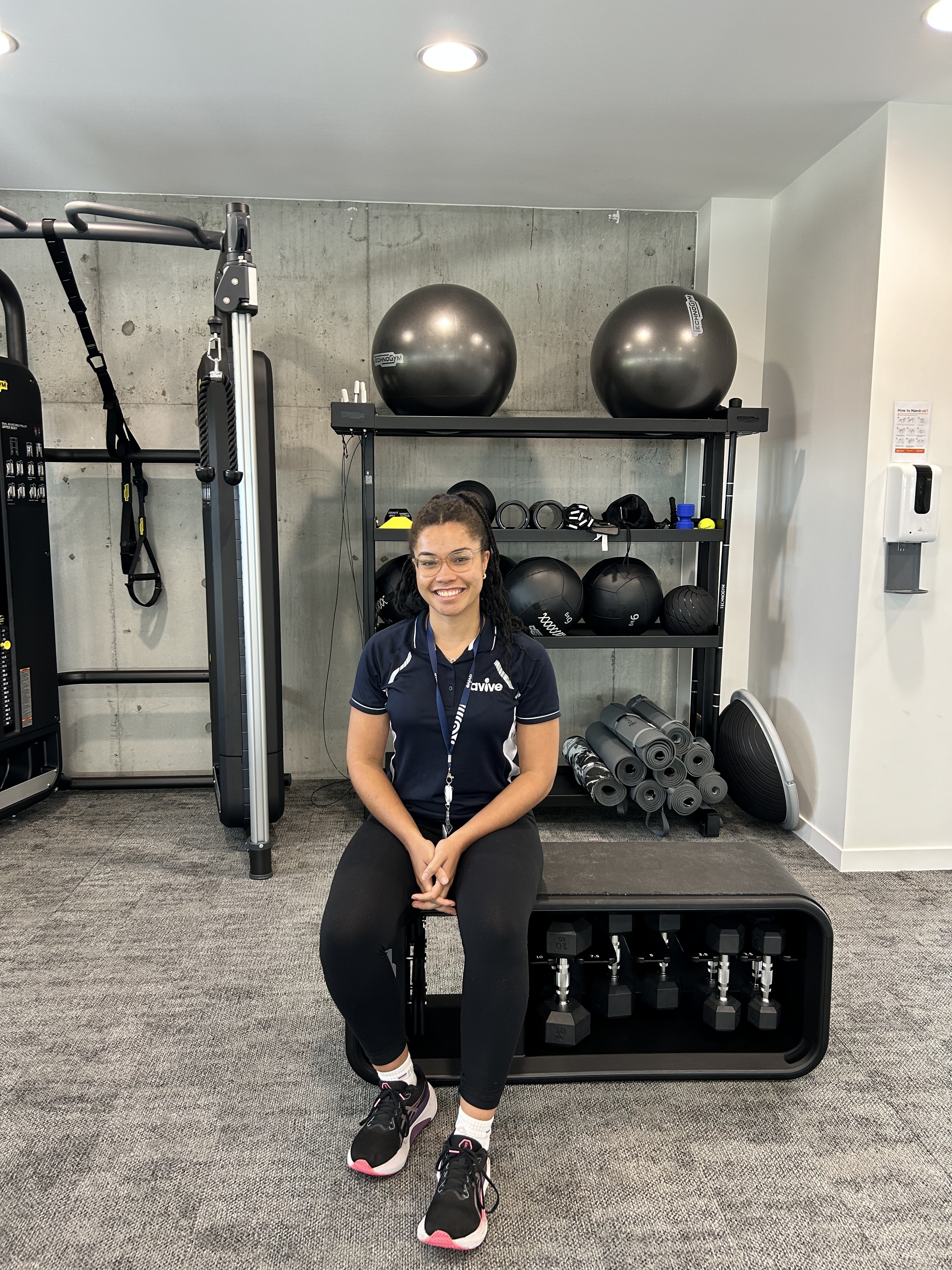Meet Grace Ike, Exercise Physiologist Brisbane
At Avive, we believe recovery is most powerful when care goes beyond the traditional - when we bring together emotional, psychological, and physical wellbeing into a unified approach.
In this interview, we speak with Grace Ike, exercise physiologist at Avive Clinic Brisbane and a passionate researcher, about how movement and embodied practices can play a transformative role in mental health recovery. From running our embodied emotion and movement program to pursuing her PhD, Grace is helping reshape how we think about mental health - not just as something we treat, but as something we experience, in every part of ourselves.
Read on to discover how Grace is helping patients reconnect with their bodies, calm their nervous systems, and rediscover their strength - inside and out.

Why did you choose to work in the mental health sector?
I have always been interested in mental health and have been involved in research within the therapeutic intervention and practice space. I believe in a holistic approach to managing mental health and recovery – one that goes beyond the traditional biomedical model. My goal is to connect with individuals in a way that equips them with the tools they need to recover and improve their well-being. I am currently doing my PhD in this area, as there is still much to explore in this field. At Avive, I am able to apply both clinical and practical approaches to see if these methods are truly effective.
What inspired you to work at Avive?
What inspired me to work at Avive was the opportunity to be part of an organisation that shares my commitment to holistic and patient-centered care. Avive’s approach aligns with my belief that recovery is not just about treatment but about supporting individuals through a comprehensive process that includes emotional, physical, and mental wellbeing. The ability to contribute to Avive’s clinical practices, while also continuing my research, was an exciting opportunity to see how theory and practice can intersect and make a tangible difference in people’s lives.
What makes Avive different?
We value the role of community-based organisations in delivering grassroots support. Avive partners with these groups to extend the reach of care and provide holistic support to patients and their families.
Tell us a bit about what you do at Avive.
My main role at Avive involves running the embodied emotion and movement program. I teach patients about the important role movement plays in managing mood and mental health. A key focus is helping individuals understand the connection between the brain and body. I work with patients to explore alternative ways of moving, aiming to calm the nervous system and support their recovery. For some, it’s their first introduction to movement as a tool for mental health, and I guide them through how movement can go beyond physical benefits to support emotional and mental wellbeing.
What do you love about your role?
I think I have the best job in the world. I get to see the power of something as simple as movement change people’s perspective on both physical and mental health – and often on life itself. Many patients have tried traditional therapies like CBT and DBT, and sometimes, introducing movement for the first time brings up things they’ve never dealt with before. It’s really special and powerful to witness this transformation. Being part of that journey and seeing the impact it has on individuals is truly special.
Do you have any hobbies or interests outside of work?
I enjoy HYROX competitions, which are a high-intensity events that really push me. I also love running and am part of a run club. Outside of that, I’m a big fan of cooking and trying new recipes. Cooking is a great way for me to bring family and friends together.
Get in touch
Discover how Avive can support your mental health journey by contacting us.
- Email our admissions team
- Call our admissions team on 1800 284 830.
- Contact an Avive location nearest you..

